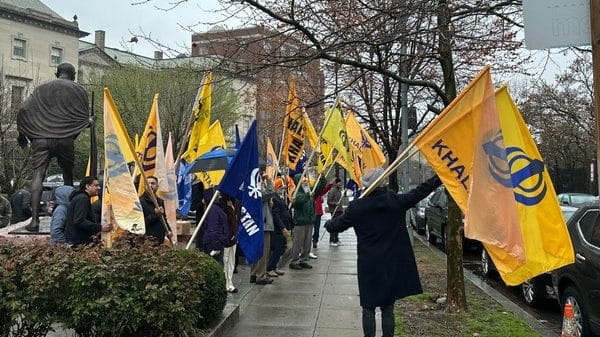
Thank you dear subscribers, we are overwhelmed with your response.
Your Turn is a unique section from ThePrint featuring points of view from its subscribers. If you are a subscriber, have a point of view, please send it to us. If not, do subscribe here: https://theprint.in/subscribe/
My recent conversations on social media with strangers have highlighted the issue of how some members of the Indian diaspora living outside of India view their home country. Specifically, there is concern that their view of India may be outdated and out of touch with the current reality.
Many members of the Indian diaspora left India in the 1980s and 1990s during a time of great upheaval, particularly in Punjab. This was a time of insurgency and violence in the state, as well as the Indian government’s crackdown on Sikh militants. As a result, many Sikhs left India during this time to settle in other countries. However, it is suggested that for many of these individuals, their view of India has remained frozen in time, with the events of the 80s and 90s shaping their perception of the country.
The issue here is that these views may be passed down to the next generation, which may have even less understanding of the current situation in India. This can perpetuate outdated and inaccurate stereotypes about the country, which can be harmful to India’s image and reputation.
There is also a concern that some members of the Indian diaspora may be actively working against India’s interests. Some individuals have suggested that second-generation Indians with non-Indian citizenship may be particularly dangerous for India. These individuals may have developed a mindset that is anti-India, and they may be working against the country’s interests in various ways.
While it is important to acknowledge that some members of the Indian diaspora may have legitimate grievances with the Indian government, it is also essential to recognize that these issues must be addressed in a way that is fair and just. It is not helpful to make sweeping generalisations about the diaspora or to treat all members of the diaspora as if they are working against India.
One example of this is the issue of Khalistan, which refers to the demand for a separate Sikh state in India. While some members of the Indian diaspora may support this demand, it is important to recognize that this view is not representative of all members of the diaspora. Additionally, there is evidence to suggest that the Khalistan movement was sponsored by Pakistan and that it was part of a larger effort to destabilise India.
Furthermore, there is concern that some members of the Indian diaspora who have sought political asylum in other countries may have done so under false pretences. It is suggested that some individuals who have sought asylum may have been involved in illegal activities in India and may be using the asylum process to evade justice.
However, it is important to recognize that the asylum process in other countries works differently than it does in India. Political asylum is granted to individuals who fear persecution or prosecution if they return to their home country. It is not the responsibility of the country granting asylum to assess the guilt of the individual seeking asylum.
It is also important to note that while some members of the Indian diaspora may have negative views of India, there are also many individuals who are working hard to promote India’s interests and to strengthen the relationship between India and other countries. These individuals are playing a critical role in shaping the narrative about India and ensuring that the country is viewed in a positive light.
Moreover, many members of the Indian diaspora who have emigrated to other countries have become highly successful in their chosen fields, from business to academia to the arts. They serve as powerful ambassadors for India, showcasing the country’s talent and potential to the world.
Of course, there are also many challenges that India faces, from poverty and inequality to corruption and political polarisation. However, it’s important to avoid painting an overly negative picture of the country, which can feed into harmful stereotypes and misunderstandings. India is a complex and diverse place, full of contradictions and surprises, and it deserves to be understood on its own terms.
In conclusion, the conversations on social media about the views of the Indian diaspora highlight the importance of recognizing the diversity of views within the diaspora. While it is important to address legitimate grievances and concerns, it is also essential to avoid making sweeping generalisations about the diaspora as a whole. By engaging with members of the diaspora and working to address their concerns in a fair and just manner, India can build stronger relationships with the diaspora and ensure that the country is viewed positively around the world.
These pieces are being published as they have been received – they have not been edited/fact-checked by ThePrint.


COMMENTS